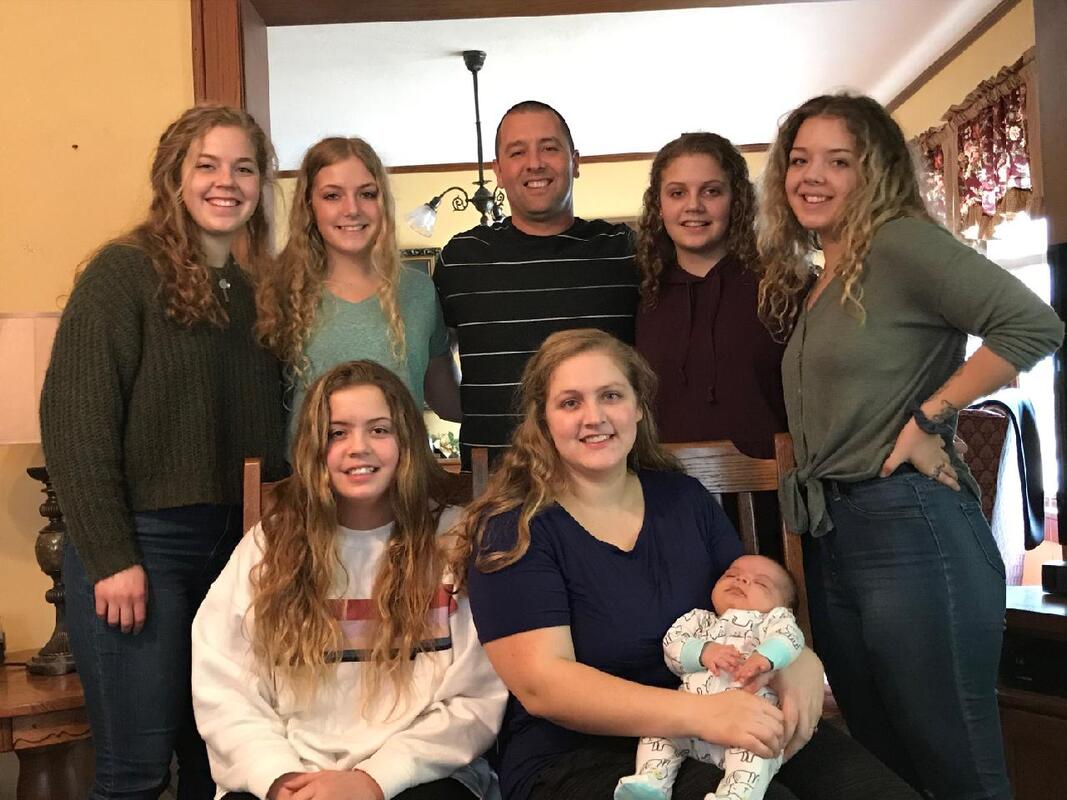|
In doing some self-examination this morning, ask yourself, “is there anything that God is noticing that I love more than I love Him?” Remember, our God is a jealous God, and our God gives and takes away. Is it possible that if we love something more than Him that He could test us by removing that object or individual from our lives in order for us to get back to our first love? Take some time to pray to the Lord this morning and ask Him what it is that you’ve allowed to become of greater importance than Him in your life. It may be something you’ve intentionally or unintentionally allowed, nevertheless, what is it that you can do to make it right with the Lord today?
Practicing His Presence, Nate
Matthew 10:37-39 (ESV) 37 Whoever loves father or mother more than me is not worthy of me, and whoever loves son or daughter more than me is not worthy of me. 38 And whoever does not take his cross and follow me is not worthy of me. 39 Whoever finds his life will lose it, and whoever loses his life for my sake will find it. Luke 14:26 (NLT) “If you want to be my disciple, you must, by comparison, hate everyone else—your father and mother, wife and children, brothers and sisters—yes, even your own life. Otherwise, you cannot be my disciple. John 21:15 (NLT) After breakfast Jesus asked Simon Peter, “Simon son of John, do you love me more than these?” “Yes, Lord,” Peter replied, “you know I love you.” “Then feed my lambs,” Jesus told him. Below is an article from gotquestions.org that helps us answer the following question… Question… What did Jesus mean when He instructed us to hate our father and mother (Luke 14:26)? Answer… First, we must take this verse in the context of the chapter. Jesus is teaching His disciples, and, like any good teacher, He gets His students thinking. In this case, He begins with a truth statement that is hard to understand. Then He clarifies it with a metaphor. The truth statement is Luke 14:26, “If anyone comes to me and does not hate father and mother, wife and children, brothers and sisters—yes, even their own life—such a person cannot be my disciple.” It seems that, if we don’t hate our family, we can’t be Jesus’ disciple. Or is there more to this issue? Following the statement that we must “hate” our father and mother, Jesus relates a metaphor about a man who builds a house without first counting the cost (Luke 14:28–30). The man finds that he cannot follow through with what he set out to do. He leaves the house unfinished because he cannot pay what is required. Jesus’ illustration helps explain His difficult statement about hating our mother and father—namely, we must count the cost of being a disciple. There is a cost, and that is the point of the passage. In order to be a disciple, we must be willing to give up everything for Jesus. Following Jesus requires commitment and faithfulness, even if our parents choose not to follow the Lord. If and when we are faced with the painful choice of loyalty to family versus loyalty to Jesus, we must choose Jesus. Even if our family members disown us—or worse—for being Christians, we must follow Christ. It is in this sense that we are “hating” our family. Jesus’ command to “hate father and mother” requires us to prioritize our relationship with Jesus over our relationship with parents, siblings, and other family members. Of course, it is right to love our family members, and we want them to love and follow God. Elsewhere, Jesus confirmed the fifth commandment that we honor our fathers and mothers (Mark 7:9–13). And Paul sternly warned that “anyone who does not provide for their relatives, and especially for their own household, has denied the faith and is worse than an unbeliever” (1 Timothy 5:8). Jesus’ statement that we “hate” father and mother must be seen in relation to the whole of Scripture. His point is not that we are to be heartless toward our families, only that we must love Him more. We must not forget that included in Jesus’ condition that a follower must “hate” his father and mother is the condition that he likewise hate “even his own life” (Luke 14:26, NAS). Jesus is not teaching an emotional hatred of one’s parents any more than He is teaching self-hatred. The emphasis is on self-denial and absolute surrender. Immediately following is Jesus’ instruction to “carry your own cross” (verse 27, NLT). Some other translations make Jesus’ meaning a little clearer: “If you want to be my disciple, you must hate everyone else by comparison” (Luke 14:26, NLT, emphasis added), and the Amplified Bible says that a follower of Christ must “hate” his family members “in the sense of indifference to or relative disregard for them in comparison with his attitude toward God.” It is a “hatred” by comparison, not an absolute hatred. The word hate in Luke 14:26 deserves a closer look. In the Hebrew Scriptures, the contrast between “love” and “hatred” is sometimes used to communicate preference. For example, in dealing with inheritances in polygamous marriages, the Mosaic Law referred to “two wives, one beloved, and another hated” (Deuteronomy 21:15, KJV). This is a good, literal translation. There was a “loved” wife and a “hated” wife. Other translations usually soften the “hated” wife to be “unloved” (CSB) or “less loved” (NET). The law was not indicating emotional hatred on the part of the husband, only preference. One wife was preferred over the other. We have a similar use of the love/hate idiom in Malachi 1:2–3 (cf. Romans 9:13). Many Christians will never have to make the painful choice of turning their backs on their family in order to follow Christ. But, around the world, there are many other Christians who face shunning, disowning, or persecution from their families. These believers, if they are to be true to Christ, are forced to live in a way perceived as “hateful” toward their “father and mother, wife and children, brothers and sisters” (Luke 14:26). All believers are called to acknowledge the lordship of Christ and show Him preference over all earthly ties. Those who must sacrifice earthly relationships have this promise: “No one who has left home or brothers or sisters or mother or father or children or fields for me and the gospel will fail to receive a hundred times as much in this present age: homes, brothers, sisters, mothers, children and fields—along with persecutions—and in the age to come eternal life” (Mark 10:29–30). https://www.gotquestions.org/hate-father-mother.html Song: More Than Anything by Anita Wilson
0 Comments
Leave a Reply. |
AuthorNate Smith is a husband, a father of 6 girls, grandpa to 3 granddaughters and one grandson, a police and fire chaplain, a pastor, and has a passion to see men grow in Christ. #girldad including granddaughter
Archives
May 2024
Categories |




 RSS Feed
RSS Feed